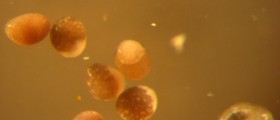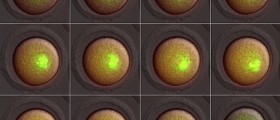
Many sperm banks, however, now encourage "open donation", due to the increasing demand from would-be mothers to get more complete information about the sperm donor than the usual age, hair color, eye color, and occupation that once was the entirety of the information the sperm bank released. Sperm donors typically receive US $150 to $250 for each donation, donating sperm about six times a month. For additional money, some sperm donors also allow access to their childhood photos, school essays, and audiotapes. As more and more sperm recipients are single women, often lesbian mothers, who tell their children about the method of their conception at an early age, more and more sperm banks are feeling pressure to make complete information about the biological fathers available to all their children. And some sperm donors are the biological fathers of many, many children.
Each donation can be used to inseminate six women, and many sperm donors make donation six times a month for years - at 432 children per year. It's relatively easy to track sons, who share Y chromosome with their biological fathers. Typically boys get in touch with their half-brothers, through sites such as Family Tree DNA and Donor Sibling Registry. About 45,000 children use these sites to attempt to identify their half-siblings, and about 300 men have chosen to disclose their identity to any children they may have helped to conceive.
In the United States, federal law requires sperm banks to screen for HIV, cystic fibrosis, and dozens of other diseases. The existence of diseases that cannot be screened, such as autism, however, will cause increasing demand to identify sperm donors who may have passed these characteristics to their offspring. The law usually protects the privacy of men who donate sperm - with one important exception. Men who establish a "dad" relationship with children they know or even just believe to their own, calling on birthdays, sending gifts, and similar acts, are not legally allowed to be "half a father." Men who acknowledge any kind of parental relationship with a child may find themselves sued for child support in at least two American states, New York and Pennsylvania. And in the cases in these states, the sperm donors lost.

















Your thoughts on this
Loading...